From Granite to Quartz: Which Kitchen Countertop Surface is Right for You?
The kitchen is the heart of every home, and the countertops are the centerpiece of any kitchen. When it comes to selecting the perfect surface for your kitchen countertops, you have a wide range of options to choose from, including granite, quartz, marble, and more. While each of these materials has its unique benefits and drawbacks, granite and quartz are two of the most popular choices for homeowners. Both granite and quartz offer durability, beauty, and functionality, making them ideal for any kitchen. But which one is right for you? Let’s compare granite and quartz, highlighting their differences and similarities to help you make an informed decision about which countertop surface is best suited for your needs. So, whether you’re renovating your kitchen or building a new home, discover the key factors to consider when choosing between granite and quartz countertops.
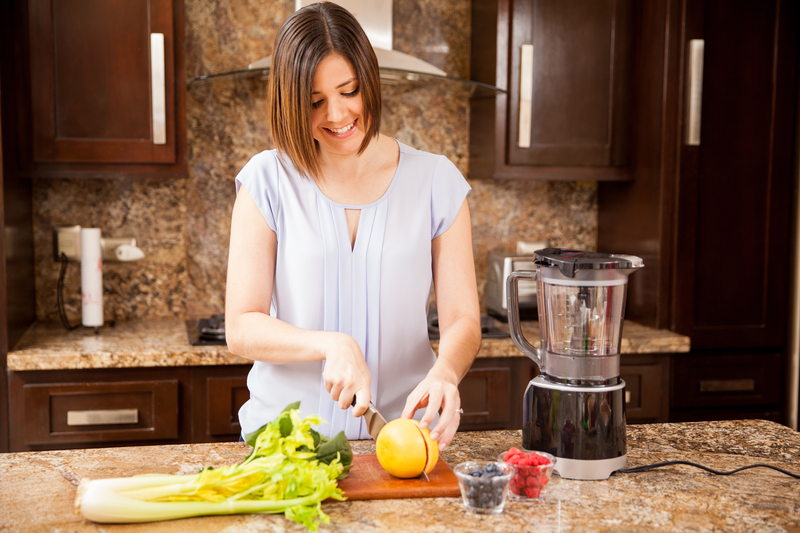
Which material for You Countertops, Granite or Quartz?
Advantages of Granite Countertops
Granite is a natural stone that is mined from quarries all over the world. It is one of the most popular choices for kitchen countertops due to its durability, beauty, and unique patterns. Here are some of the advantages of granite countertops:
1. Durability
Granite is one of the most durable countertop materials available. It is heat-resistant, scratch-resistant, and can withstand heavy use without showing signs of wear and tear. Granite countertops can last for decades with proper care and maintenance.
2. Aesthetics
Granite comes in a wide range of colors and patterns, making it easy to find a style that complements your kitchen’s décor. Each slab of granite is unique, with its own variations in color and pattern, giving your kitchen a one-of-a-kind look.
3. Resale Value
Granite countertops are a popular feature in homes, and having them in your kitchen can increase the resale value of your home. Homebuyers often look for homes with granite countertops, making them a smart investment for homeowners.
4. Easy to Clean
Granite countertops are easy to clean and maintain. Simply wipe them down with a damp cloth and mild soap, and they will look as good as new. Granite is also resistant to bacteria and stains, making it a hygienic choice for kitchens.
5. Natural Material
Granite is a natural material, making it an eco-friendly choice for homeowners who are looking to reduce their carbon footprint. It is also a non-toxic material, making it safe for food preparation.
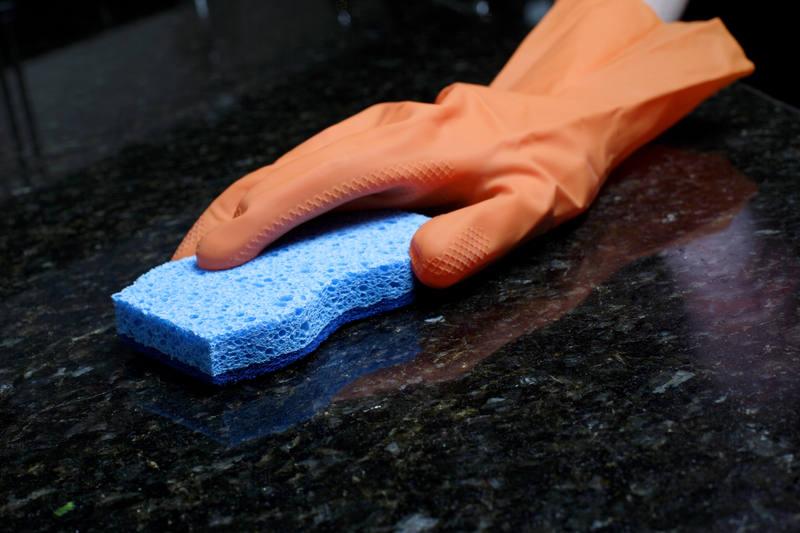
Disadvantages of Granite Countertops
While there are many advantages to granite countertops, there are also some disadvantages to consider:
1. Cost
Granite countertops can be expensive, with prices ranging from $50 to $200 per square foot. The cost of installation can also add up, making granite a significant investment for homeowners.
2. Maintenance
While granite is easy to clean, it does require some maintenance to keep it looking its best. It should be sealed on a regular basis to prevent stains and scratches, which can add to the cost of ownership.
3. Weight
Granite is a heavy material, which can make installation a challenge. It requires a strong support structure to hold its weight, which can add to the cost of installation.
4. Porous
Granite is a porous material, which means it can absorb liquids and stains if not properly sealed. This can make it difficult to clean and maintain, especially in high-traffic areas.
5. Limited Availability
While granite comes in a wide range of colors and patterns, it is a natural material, which means that it is subject to availability. This can make it difficult to find the exact color and pattern that you want for your kitchen.
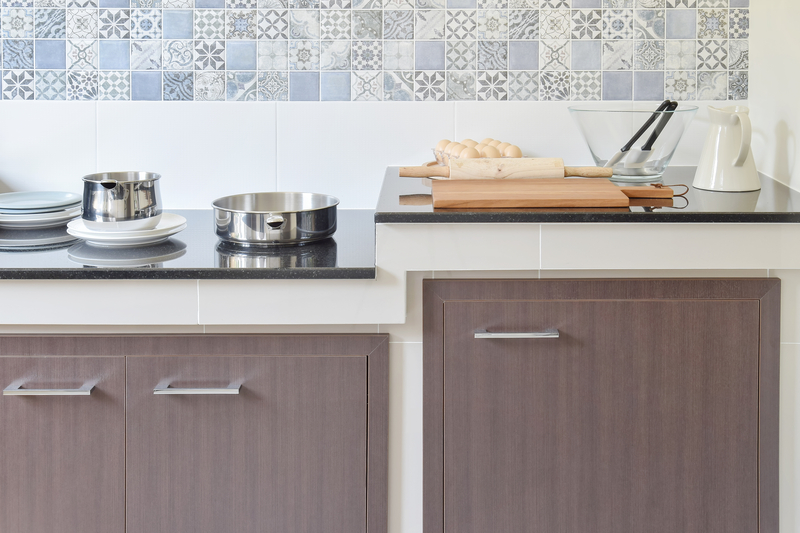
Advantages of Quartz Countertops
Quartz is a man-made material that is composed of natural quartz stone and resin. It is a popular choice for kitchen countertops due to its durability, beauty, and low maintenance. Here are some of the advantages of quartz countertops:
1. Durability
Quartz is one of the most durable countertop materials available. It is heat-resistant, scratch-resistant, and can withstand heavy use without showing signs of wear and tear. Quartz countertops can last for decades with proper care and maintenance.
2. Aesthetics
Quartz comes in a wide range of colors and patterns, making it easy to find a style that complements your kitchen’s décor. It is also engineered to have a consistent pattern, which can give your kitchen a more uniform look.
3. Low Maintenance
Quartz is a low-maintenance material that requires no sealing or special care. Simply wipe it down with a damp cloth and mild soap, and it will look as good as new.
4. Non-Porous
Quartz is a non-porous material, which means it is resistant to bacteria and stains. This makes it a hygienic choice for kitchens, especially for families with young children.
5. Eco-Friendly
Quartz is an eco-friendly choice for homeowners who are looking to reduce their carbon footprint. It is made from natural materials and does not contain any harmful chemicals.
Disadvantages of Quartz Countertops
While there are many advantages to quartz countertops, there are also some disadvantages to consider:
1. Cost
Quartz countertops can be expensive, with prices ranging from $60 to $150 per square foot. The cost of installation can also add up, making quartz a significant investment for homeowners.
2. Limited Heat Resistance
While quartz is heat-resistant, it is not as heat-resistant as granite. Placing hot pots and pans directly on a quartz countertop can cause damage, so it is important to use trivets or hot pads to protect the surface.
3. Limited Availability
While quartz comes in a wide range of colors and patterns, it is a man-made material, which means that it is subject to availability. This can make it difficult to find the exact color and pattern that you want for your kitchen.
4. Not Natural Material
Quartz is not a natural material, which may be a concern for homeowners who are looking for an eco-friendly option. It is also a synthetic material, which may not have the same feel or texture as natural stone.
5. Vulnerable to Scratches
While quartz is scratch-resistant, it is not completely scratch-proof. It can be vulnerable to scratches from sharp knives and other kitchen utensils, so it is important to use cutting boards and other protective measures to prevent damage.
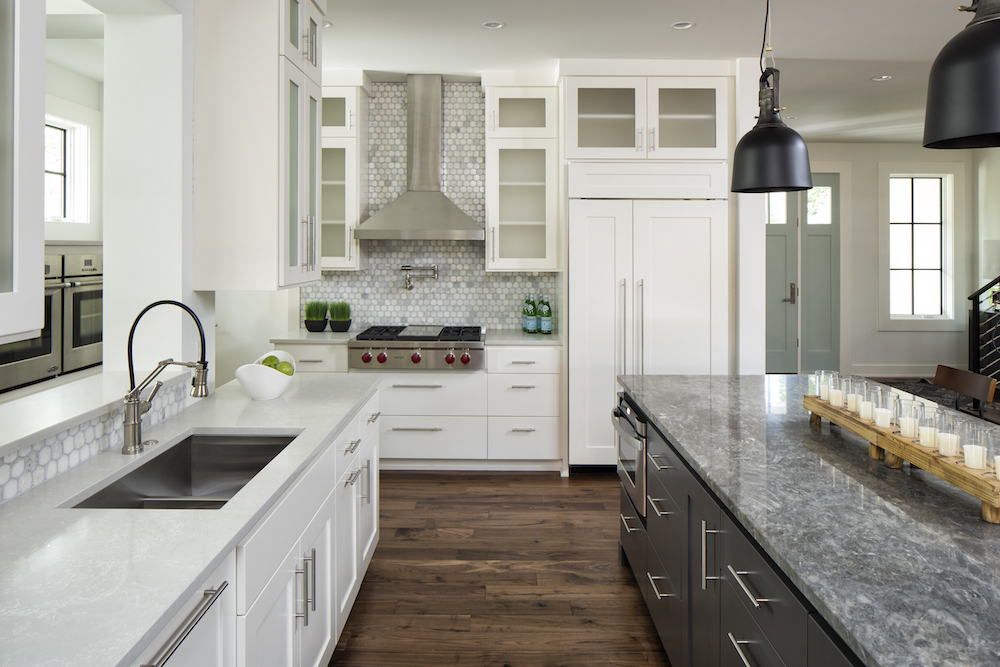
Comparison of Granite and Quartz Countertops
When it comes to comparing granite and quartz countertops, there are several factors to consider, including durability, maintenance, aesthetics, and cost.
1. Durability
Both granite and quartz are durable materials that can withstand heavy use without showing signs of wear and tear. However, granite is slightly more heat-resistant than quartz, making it a better choice for homeowners who do a lot of cooking.
2. Maintenance
Granite requires sealing on a regular basis to prevent stains and scratches, while quartz requires no sealing or special care. Both materials are easy to clean and maintain, but quartz may be a better choice for homeowners who want a low-maintenance option.
3. Aesthetics
Both granite and quartz come in a wide range of colors and patterns, making it easy to find a style that complements your kitchen’s décor. However, granite is a natural material, which means that each slab is unique, while quartz is an engineered material, which means that it has a consistent pattern.
4. Cost
Both granite and quartz can be expensive, with prices ranging from $50 to $200 per square foot. However, the cost of installation can also add up, making either material a significant investment for homeowners.
Factors to Consider When Choosing Between Granite and Quartz Countertops
When it comes to choosing between granite and quartz countertops, there are several factors to consider, including lifestyle, budget, and personal preferences.
1. Lifestyle
Your lifestyle can play a big role in determining which countertop material is right for you. If you do a lot of cooking and entertaining, granite may be a better choice due to its heat resistance and durability. If you have young children, quartz may be a better choice due to its non-porous surface and low maintenance.
2. Budget
Both granite and quartz can be expensive, so budget is an important consideration. If cost is a concern, you may want to consider other options, such as marble or concrete.
3. Personal Preferences
Your personal preferences should also be taken into account when choosing between granite and quartz countertops. Do you prefer the natural look of granite or the uniform look of quartz? Do you want a low-maintenance option, or are you willing to invest more time and money into maintenance?
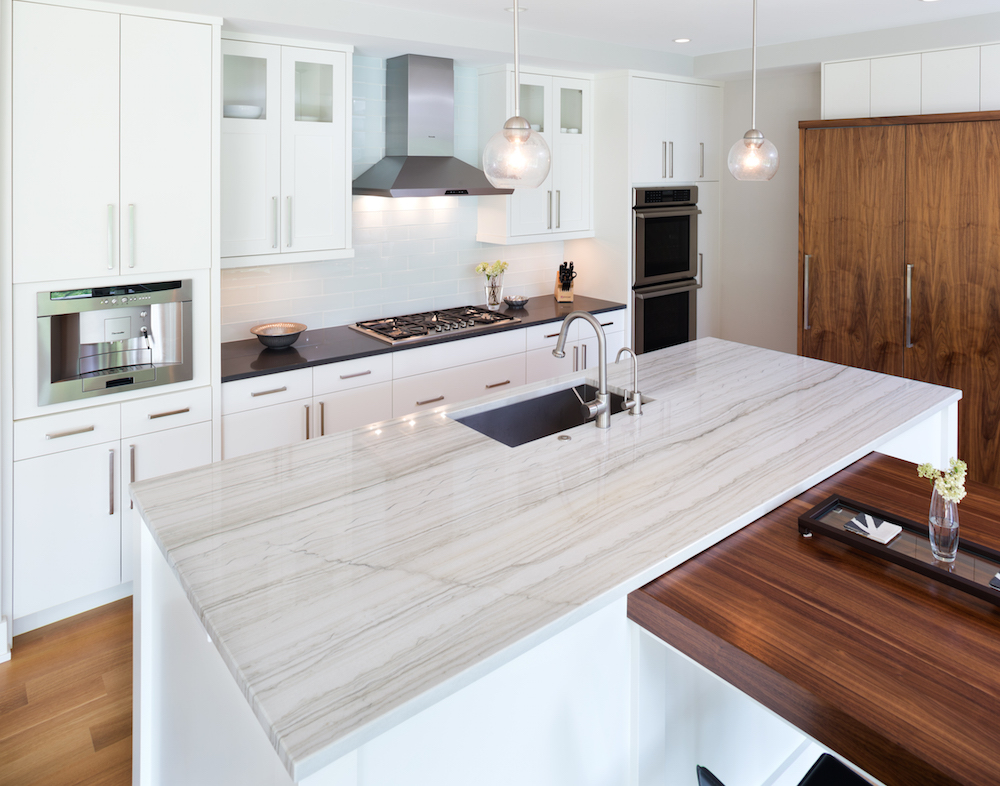
Other Popular Kitchen Countertop Surfaces
While granite and quartz are two of the most popular choices for kitchen countertops, there are other options to consider, including marble, concrete, and butcher block.
1. Marble
Marble is a natural stone that is known for its beauty and elegance. It is softer than granite and quartz, which means that it can be vulnerable to scratches and stains. However, if properly cared for, marble can last for decades and add a touch of luxury to any kitchen.
2. Concrete
Concrete is a modern and versatile option for kitchen countertops. It can be molded into any shape or size, and comes in a wide range of colors and finishes. Concrete countertops are also heat-resistant and durable, making them a great choice for homeowners who do a lot of cooking.
3. Butcher Block
Butcher block countertops are made from wood and are a popular choice for homeowners who want a warm and natural look in their kitchens. They are easy to clean and maintain, but can be vulnerable to scratches and stains if not properly cared for.
Pros and Cons of Alternative Kitchen Countertop Surfaces
While there are many options when it comes to kitchen countertop surfaces, each material has its pros and cons. Here is a summary of the pros and cons of the most popular alternative kitchen countertop surfaces:
1. Marble
Pros: Beauty, elegance, and luxury
Cons: Vulnerable to scratches and stains, requires regular maintenance
2. Concrete
Pros: Modern, versatile, and durable
Cons: Can be expensive, requires professional installation
3. Butcher Block
Pros: Warm and natural look, easy to clean and maintain
Cons: Vulnerable to scratches and stains, requires regular maintenance
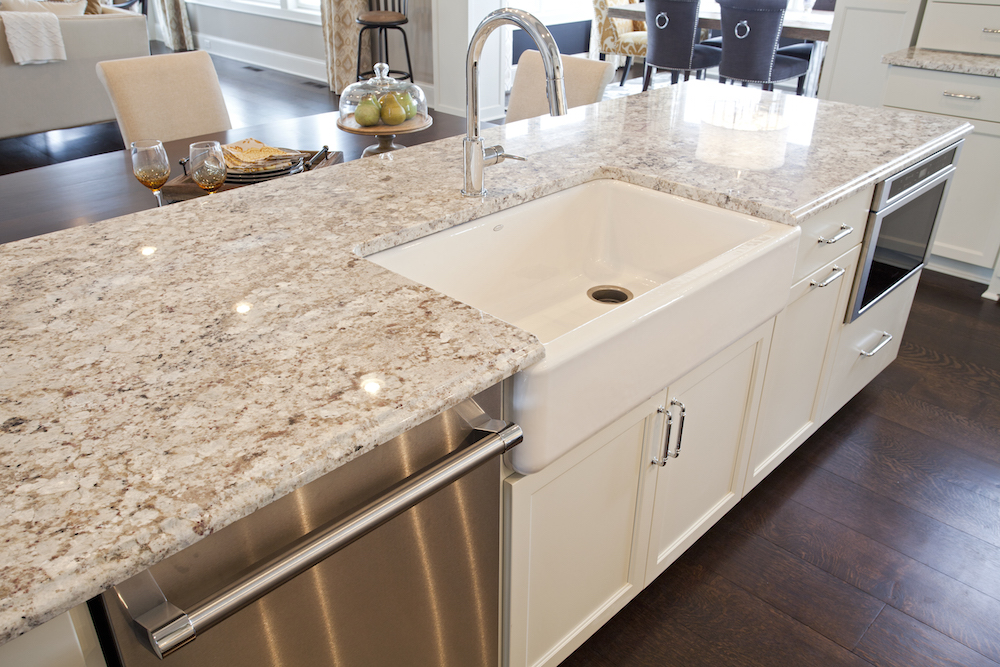
Choosing the Right Kitchen Countertop Surface for Your Home
Choosing the right kitchen countertop surface for your home can be a difficult decision, but it’s important to consider your lifestyle, budget, and personal preferences when making your choice. Granite and quartz are two of the most popular choices for homeowners, but there are other options to consider as well. By weighing the pros and cons of each material and considering your own needs and preferences, you can find the perfect countertop surface for your kitchen that will provide beauty, durability, and functionality for years to come.
Are you ready to get started on your new stone countertops?
Visit our showroom today or send us your project plans.
Unlimited Guarantee
Unlimited Guarantee
